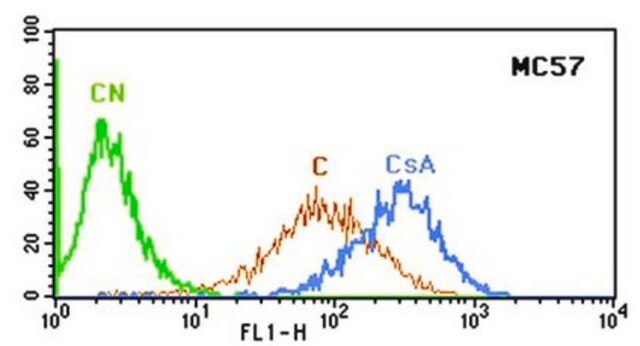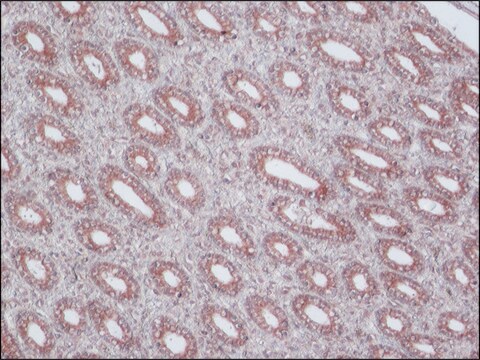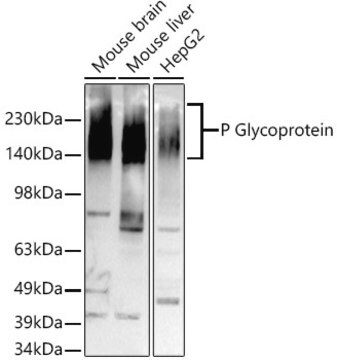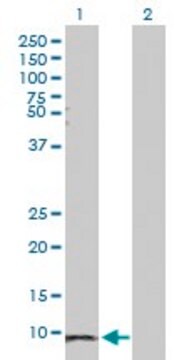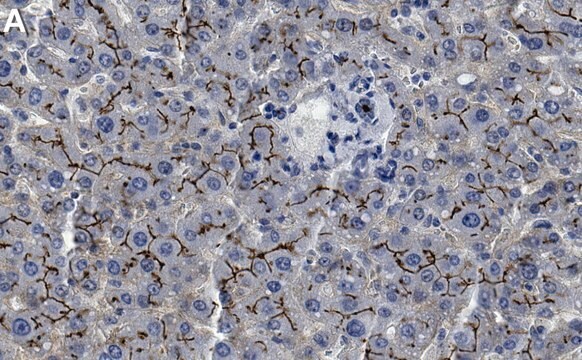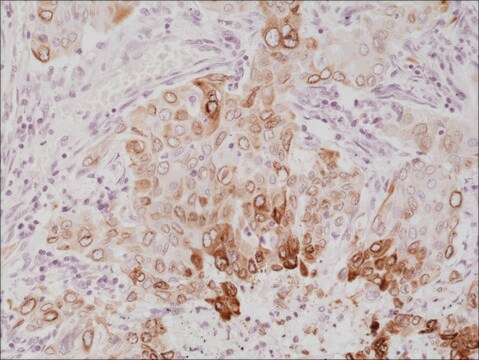SAB4200775
Anti-Glycoprotein (MDR) antibody, Mouse monoclonal
clone F4, purified from hybridoma cell culture
Sinonimo/i:
ABCB1, ATP-binding cassette sub-family B member 1, Multidrug resistance protein 1, P-glycoprotein 1
About This Item
Prodotti consigliati
Origine biologica
mouse
Livello qualitativo
Forma dell’anticorpo
purified from hybridoma cell culture
Tipo di anticorpo
primary antibodies
Clone
F4, monoclonal
Stato
buffered aqueous solution
Reattività contro le specie
hamster, human
Concentrazione
~1 mg/mL
tecniche
flow cytometry: suitable
immunoblotting: suitable
immunocytochemistry: suitable
immunohistochemistry: suitable
immunoprecipitation (IP): suitable
Isotipo
IgG1
N° accesso UniProt
Condizioni di spedizione
dry ice
Temperatura di conservazione
−20°C
modifica post-traduzionali bersaglio
unmodified
Informazioni sul gene
human ... ABCB1(5243)
Descrizione generale
Specificità
Immunogeno
Applicazioni
- immunoblotting
- immunoprecipitation
- immunocytochemistry
- immunohistochemistry
- cellular enzyme-linked immunosorbent assay (ELISA)
- flow cytometry (FACS)
- cell surface radioimmunoassay (RIA)
Azioni biochim/fisiol
Stato fisico
Stoccaggio e stabilità
Esclusione di responsabilità
Non trovi il prodotto giusto?
Prova il nostro Motore di ricerca dei prodotti.
Raccomandato
Codice della classe di stoccaggio
10 - Combustible liquids
Punto d’infiammabilità (°F)
Not applicable
Punto d’infiammabilità (°C)
Not applicable
Scegli una delle versioni più recenti:
Certificati d'analisi (COA)
Non trovi la versione di tuo interesse?
Se hai bisogno di una versione specifica, puoi cercare il certificato tramite il numero di lotto.
Possiedi già questo prodotto?
I documenti relativi ai prodotti acquistati recentemente sono disponibili nell’Archivio dei documenti.
Il team dei nostri ricercatori vanta grande esperienza in tutte le aree della ricerca quali Life Science, scienza dei materiali, sintesi chimica, cromatografia, discipline analitiche, ecc..
Contatta l'Assistenza Tecnica.